Premium Only Content

Lone Ranger 38-05-30 (0833) The Rosalinda Mine
The Lone Ranger is a fictional masked former Texas Ranger who fought outlaws in the American Old West with his Native American friend, Tonto. The character has been called an enduring icon of American culture.
He first appeared in 1933 in a radio show conceived either by WXYZ (Detroit) radio station owner George W. Trendle, or by Fran Striker, the show's writer The radio series proved to be a hit and spawned a series of books (largely written by Striker), an equally popular television show that ran from 1949 to 1957, comic books, and several movies.
The title character was played on the radio show by Earle Graser for some 13,000 episodes but three others preceded him, according to The New York Times: "a man named Deeds, who lasted only a few weeks; a George Stenius [actually George Seaton according to the Los Angeles Times] and then Brace Beemer; the latter became the narrator of the program.
Clayton Moore portrayed the Lone Ranger on television although, during a contract dispute, Moore was replaced temporarily by John Hart, who wore a different style of mask. On the radio, Tonto was played by, among others, John Todd and Roland Parker; and in the television series, by Jay Silverheels, who was a Mohawk from the Six Nations Indian Reserve in Ontario, Canada.
Original radio series
The creators of the character were George Trendle (manager of WXYZ radio station) and writer Fran Striker.
The first of 2,956 radio episodes of The Lone Ranger premiered on WXYZ, a radio station serving Detroit, Michigan, on January 30, 1933 or January 31, 1933. As Dunning writes in On the Air: The Encyclopedia of Old-Time Radio:
There may have been a few late-night on-air shakedown shows prior to the official January 31, 1933 premiere date. Lacking concrete evidence, [Lone Ranger authority Terry] Salomonson is inclined to doubt it. "There is nothing in any of the Detroit papers to indicate this, but that in itself doesn't mean much. The papers didn't even list the show in their radio logs at first.
The show was an immediate success. Though it was aimed at children, adults made up at least half the audience. It became so popular, it was picked up by the Mutual Broadcasting System and, on May 2, 1942, by NBC's Blue Network, which in time became ABC.
By 1939, some 20 million Americans were listening to the program. It also had numerous listeners in other countries.
Cast
The Lone Ranger was played by several actors:
• John L. Barrett, on test broadcasts on WEBR in January 1933;
• George Seaton (under the name George Stenius) (January 31 – May 9, 1933)
• Series director James Jewell, for one episode;
• An actor known only by the pseudonym "Jack Deeds", for one episode;
• Earle Graser (May 16, 1933 – April 7, 1941). On April 8, Graser died in a car accident; and, for five episodes, the Lone Ranger was unable to speak beyond a whisper, with Tonto carrying the action. In addition, six episodes broadcast in August 1938 did not include the Lone Ranger's voice other than an occasional "Hi-Yo Silver!" in the background. In those episodes, Tonto carried the dialog;
• Brace Beemer (April 18, 1941 to the end), who had been the show's deep-voiced announcer for several years;
• Fred Foy (March 29, 1954), also an announcer on the show, took over the role for one broadcast when Beemer had laryngitis.
Tonto was played throughout the run by actor John Todd (although there were a few isolated occasions when he was replaced by Roland Parker, better known as Kato for much of the run of sister series The Green Hornet). Other supporting players were selected from Detroit area actors and studio staff.
Music
The theme music was primarily taken from the "March of the Swiss Soldiers" finale of Gioachino Rossini's William Tell Overture, which thus came to be inseparably associated with the series. The theme was conducted by Daniel Pérez Castañeda, with the softer parts excerpted from Die Moldau, composed by Bedřich Smetana.
Classical music was originally used because it was in the public domain, thus allowing production costs to be kept low while providing a wide range of music as needed without the cost of a composer. The incidental music from Liszt's Les Preludes was being used in the 1940s by Germany's Nazi propaganda minister, Joseph Goebbels, as a theme in German weekly news announcements, particularly to dramatize German victories in WWII.
In the late 1930s, Trendle acquired the rights to use incidental music from Republic Pictures motion picture serials as part of a deal for Republic to produce a serial based (loosely) on the Lone Ranger.
This music was then modified by NBC radio arranger Ben Bonnell and recorded in Mexico to avoid American union rules. This music was used in both the radio and later television shows.
-
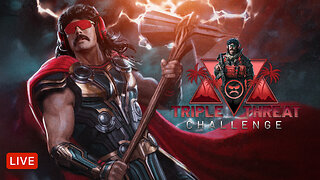 LIVE
LIVE
Dr Disrespect
8 hours ago🔴LIVE - DR DISRESPECT - TRIPLE THREAT CHALLENGE - WZ, PUBG, FORTNITE
2,447 watching -
 LIVE
LIVE
Wayne Allyn Root | The Root Reaction
2 hours agoThe Root Reaction | 28 April 2025
162 watching -
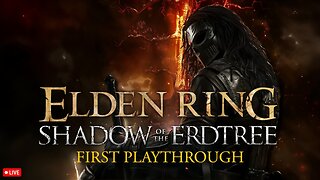 LIVE
LIVE
GrimmHollywood
7 hours ago🔴LIVE • GRIMM HOLLYWOOD • SHADOW OF THE ERDTREE FIRST PLAYTHROUGH • PART 1
86 watching -
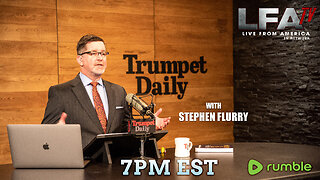 LIVE
LIVE
LFA TV
1 day agoThat Big, Beautiful Wall Around the Vatican | TRUMPET DAILY 4.28.25 7PM
185 watching -
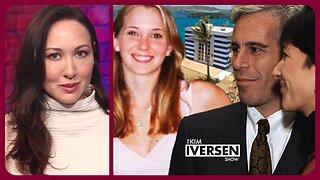 1:19:06
1:19:06
Kim Iversen
4 hours agoEpstein Victim DEAD at 41, Ruled Suicide. Suspicious? | The Left DOUBLES DOWN on Extremism
51K24 -
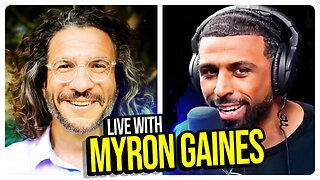 2:38:55
2:38:55
vivafrei
11 hours agoLive with Myron Gaines - from Global Politics to the "Manosphere" & Everything in Between
91.7K66 -
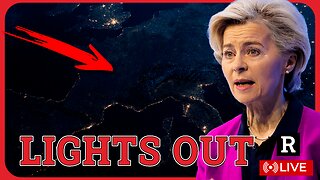 1:28:38
1:28:38
Redacted News
4 hours agoEUROPE'S BLACKOUT CRISIS "Nothing works!" & Israel's Silent War vs Iran just got worse | Redacted
102K107 -
 1:07:19
1:07:19
Candace Show Podcast
4 hours agoFarewell Show: LIVE With Ian Carroll | Candace Ep 183
76.8K99 -
 33:37
33:37
Kimberly Guilfoyle
7 hours agoThe First 100 Days: Interview with Bienvenido President Abraham Enriquez | Ep217
56.3K7 -
 42:58
42:58
Stephen Gardner
3 hours ago🔥BOOM! Trump's NEW EO just changed EVERYTHING!!
44K40